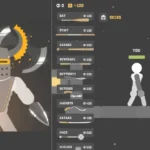Introduction to Christa Pike and the Crime
In the shadowy corridors of Tennessee’s justice system lies a chilling tale that continues to captivate and horrify. Christa Pike, an ordinary teenager turned accused murderer, became a name synonymous with tragedy and controversy. The brutal crime she committed in 1995 shocked the nation, leading to her historic conviction as one of the youngest women on death row in American history. But what drove this young girl to such heinous acts? And how has her story influenced debates surrounding capital punishment? Join us as we unravel the complex narrative of Christa Pike—a cautionary tale steeped in darkness that raises more questions than answers about morality, justice, and redemption.
ALSO READ: Margie Washichek: The Untold Story of Strength and Silence
The Trial and Conviction of Christa Pike
The trial of Christa Pike was a media spectacle that captivated the nation. Charged with the brutal murder of a fellow student, her case raised eyebrows from the start.
Evidence presented during the proceedings painted a chilling picture. Witnesses described Pike’s involvement in an act so gruesome it felt surreal. The details were not for the faint-hearted.
Her defense argued mental health issues played a significant role in her actions. However, prosecutors focused on her calculated behavior leading up to and following the crime. They depicted her as cold and manipulative.
The jury deliberated under intense public scrutiny before reaching their verdict: guilty of first-degree murder. This decision would forever alter Pike’s life trajectory and ignite debates about justice, youth violence, and accountability in America’s legal system.
Controversies Surrounding the Case
The case of Christa Pike is steeped in controversy. Many argue that her age at the time of the crime played a significant role in how she was treated throughout the legal process. At just 18 years old, many believed she could have benefited from rehabilitation rather than facing death row.
Public opinion also fluctuated dramatically during and after the trial. Some viewed Pike as a cold-blooded killer, while others saw her as a product of her environment—a troubled youth caught up in violence and manipulation.
Moreover, questions about jury bias emerged. Reports suggested that some jurors had preconceived notions about women who commit violent crimes, which may have influenced their decision-making.
Discussion surrounding mental health issues further complicates matters. Advocates argued that Pike exhibited signs of severe psychological distress that should have been fully examined before arriving at such a grave sentence.
Life on Death Row for Christa Pike
Life on death row is a stark reality for Christa Pike. In the cold confines of Tennessee’s prison, her days blur into one another. Time moves slowly in solitary confinement, and each moment feels weighty with consequence.
Pike has spent years reflecting on her past choices. The routine is regimented—meals served at specific times, limited interaction with others, and strict schedules to follow. This isolation can be both a burden and a means of introspection.
Her case garnered significant media attention over the years. Many have followed her journey from conviction to life behind bars. Supporters argue about mental health issues that could have influenced her actions during the crime.
Despite the circumstances surrounding her imprisonment, she continues to communicate with those outside prison walls through letters and interviews. Each correspondence reveals layers of complexity in a story often reduced to headlines or sensational narratives.
Impact of Christa Pike’s Case on Death Penalty Laws
The case of Christa Pike sparked intense debate regarding the death penalty in the United States. Her conviction for a brutal murder at such a young age raised questions about the appropriateness of capital punishment for juveniles.
Pike was just 18 when she committed her crime, igniting discussions on whether individuals should face execution before reaching full maturity. This dilemma prompted several states to reevaluate their laws concerning juvenile offenders and capital punishment.
Advocacy groups argued that life sentences could be more appropriate, emphasizing rehabilitation over retribution. The media coverage surrounding Pike’s trial brought national attention to these issues, influencing public opinion and legislative action.
In some jurisdictions, changes followed swiftly after her case gained notoriety. Discussions around mental health evaluations for defendants also became more prominent as society sought fairer legal practices in cases involving youth.
The Legacy of Christa Pike’s Conviction
Christa Pike’s conviction has left an indelible mark on American society. Her case serves as a chilling reminder of the complexities surrounding youth, crime, and punishment.
Many view her story as emblematic of how the justice system treats young offenders. It raises questions about maturity and accountability in crimes committed by minors.
Moreover, Pike’s situation sparked debates around mental health resources available to teenagers in distressing circumstances. Advocates argue that understanding her psychological state could have influenced outcomes during trial.
Her legacy also touches upon the broader implications for death penalty laws across various states. Some see it as a catalyst for reevaluating capital punishment practices concerning juvenile offenders.
The enduring discussions about Christa Pike evoke strong emotions and opinions. They challenge societal norms regarding justice, empathy, and rehabilitation for those who stray into darkness at a young age.
Conclusion: A Cautionary Tale or a Miscarriage of Justice?
Christa Pike’s story is undeniably complex and evokes a range of emotions. On one hand, her brutal crime shocked the nation and raised significant questions about youth violence. The details surrounding the murder reveal a tragic loss of life that cannot be overlooked.
On the other hand, her trial sparked intense debates over fairness in legal proceedings and the effectiveness of our judicial system. Many argue that issues related to mental health were inadequately addressed during both her trial and sentencing phases. This raises critical concerns about whether justice was truly served or if it became another example of an imperfect system failing those involved.
The legacy Christa Pike leaves behind is multifaceted. It serves as a cautionary tale for society—highlighting not just individual responsibility but also systemic flaws within criminal justice processes. As discussions around death penalty laws evolve, her case remains pivotal in shaping how we view punishment versus rehabilitation.
Christa Pike’s journey from teenager to death row inmate continues to resonate with many who explore its implications on morality, law enforcement practices, and societal values regarding violence.
ALSO READ: Ted Parker Obituary Lumberton NC: A Tribute to a True Legend
FAQs
What is Christa Pike?
Christa Pike is a convicted murderer, sentenced to death for the 1995 murder of Colleen Slemmer. She became one of the youngest women on death row in U.S. history.
What led to Christa Pike’s conviction?
Christa Pike was convicted for the brutal murder of Colleen Slemmer in 1995, with the court considering her calculated behavior and mental health issues during the trial.
How has Christa Pike’s case impacted death penalty laws?
Pike’s case sparked national debates on the fairness of executing juveniles, leading to reevaluations of death penalty laws for young offenders in several states.
What was Christa Pike’s life like on death row?
Life on death row for Christa Pike has been marked by isolation and reflection, as she spends her days in solitary confinement with limited interaction with others.
What is Christa Pike’s legacy?
Christa Pike’s case continues to fuel debates on juvenile justice, mental health issues in the legal system, and the morality of capital punishment for young offenders.











